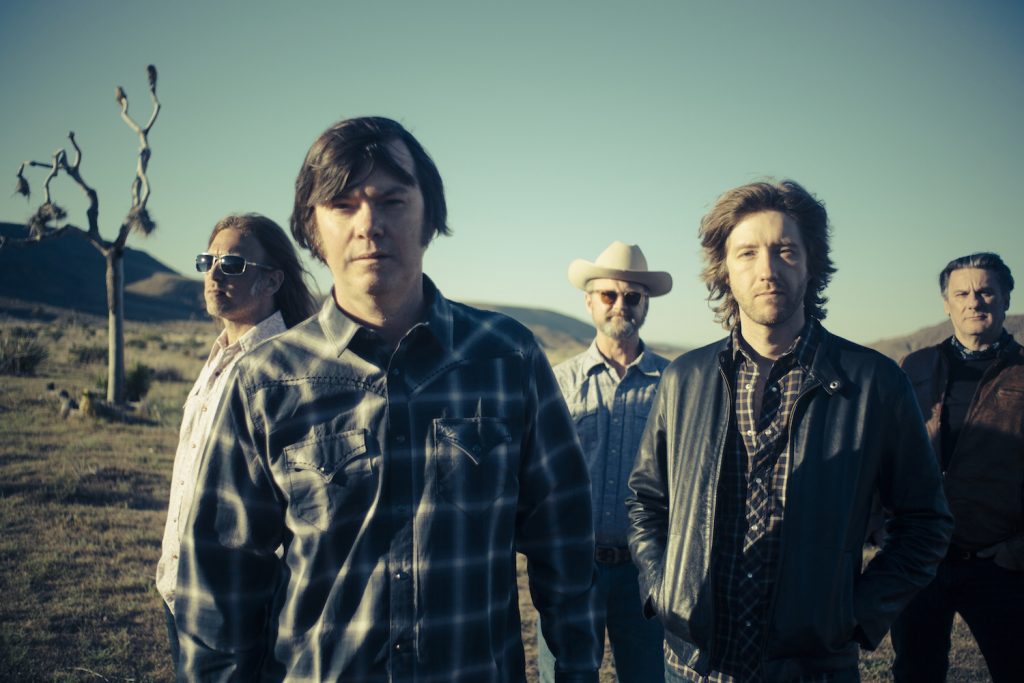
Jay Farrar doesn’t want to overly politicize Son Volt’s ninth release. “There’s definitely protest songs on it—it’s the tradition of the bard to sing about what’s going on,” says Farrar. “I was raised on folk music with political content. Basically, when you see turmoil, you write about it. Another Son Volt album to compare it to would be Okemah And The Melody Of Riot, so I’m roughly on the 10-year plan.”
Roughly, yeah—Okemah is actually 14 years old. And it doesn’t possess the easy beauty of the new Union (out tomorrow on Transmit Sound/Thirty Tigers). Available here as a free download, “Devil May Care” finds Farrar rethinking the album’s one-dimensional direction. “About midway through writing the record, I felt I had to balance things out—that there needed to be some songs that represented a more regular rock ethos,” he says. “So I thought of the ‘anything goes’ essence of rock ’n’ roll—bands like the Who, the Stones and the Replacements.”
Where 2017’s Notes Of Blue took Son Volt in a sometimes dirgey direction as it toyed with blues authenticity, Union revisits the folky elegance that made Trace’s quieter moments so enduring. In fact, new tunes like “The 99,” “While Rome Burns” and “The Reason” would’ve fit quite nicely on that 1995 classic. “With Notes Of Blue, I was really trying to explore and get inside some of those alternate tunings the old blues guys used,” says Farrar. “For the most part, I went back to standard tunings on this one.”
A major upgrade on Union is the chiming Rickenbacker work of on-and-off member Chris Frame, who rejoined the group on the Notes Of Blue tour. His inventive leads propel and enhance what are some of Farrar’s prettiest melodies in decades. “I’m been listening to a lot of Tom Petty lately, and it just seemed like the 12-string needed to be there,” says Farrar. “In some ways, it’s synonymous with protest music, going back to the Byrds and Bob Dylan.”
In the end, it’s the protest tunes that win out on Union. “I took it as my job to report on what I was seeing,” says Farrar. “There’s a sense of resignation there—you know, like, this really shouldn’t be happening. There’s such a cultural divide going on right now that doesn’t need to be there. There needs to be more of degree of reconciliation, which is where the title comes from.”
And if Union is indeed the sound of a heaving populace in the throes of disparity, Farrar is as focused as he’s ever been—and oddly at ease. Guess we can thank the Donald for that.
—Hobart Rowland





